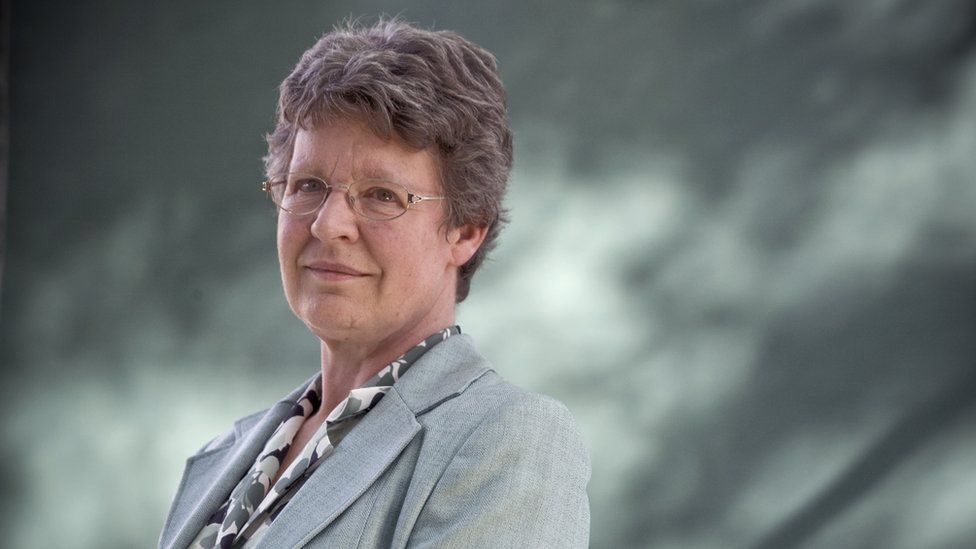Bell Burnell: Physics star gives away £2.3m prize
- Published

One of the UK's leading female astronomers is to donate her £2.3m winnings from a major science prize she was awarded.
The sum will go to fund women, under-represented ethnic minority and refugee students to become physics researchers.
Prof Dame Jocelyn Bell Burnell has been awarded a Breakthrough Prize for the discovery of radio pulsars.
This was also the subject of the physics Nobel in 1974, but her male collaborators received the award.
The Breakthrough award also recognises her scientific leadership.
'An inspiration'
Prof Bell Burnell believes that under-represented groups - who will benefit from the donation - will bring new ideas to the field.
"I don't want or need the money myself and it seemed to me that this was perhaps the best use I could put to it," she told BBC News.
Prof Bell Burnell's story has been both an inspiration and motivation for many female scientists. As a research student when pulsars were discovered, she was not included in the Nobel prize citation - despite having been the first to observe and analyse the astronomical objects (a type of neutron star that emits a beam of radiation).
She now says she wants to use her prize money to counter what she describes as the "unconscious bias" that she believes still occurs in physics research jobs.
Fresh perspective
The former president of the Institute of Physics (IOP) believes that it was because she was from a minority group herself that she had the fresh ideas required to make her discovery as a young student at Cambridge University more than 50 years ago.
"I found pulsars because I was a minority person and feeling a bit overawed at Cambridge. I was both female but also from the north-west of the country and I think everybody else around me was southern English," she said.
"So I have this hunch that minority folk bring a fresh angle on things and that is often a very productive thing. In general, a lot of breakthroughs come from left field."
Professor Dame Julia Higgins, president of the Institute of Physics, said: "This is an excellent and hugely appropriate acknowledgement of Jocelyn's work. Her discovery of pulsars still stands as one of the most significant discoveries in physics and inspires scientists the world over.
"Her example of using insight and tenacity to make a discovery that rings through the ages stands her alongside the greatest of scientists.
"Alongside her scientific achievement, Jocelyn has become a hugely respected leader in the scientific community. She has been instrumental in making sure the issue of access to science by people from under-represented groups is at the very top of the science community's agenda."
The fine detail of the scholarship have yet to be decided. In addition to women and under-represented ethnic minorities, refugee applicants will also be eligible for a slice of the funding.
She said of these groups: "Those are the people that tend to be discriminated against through unconscious bias so I think that's maybe one of the reasons why there aren't so many. And so if they come with some funding with them then they look much more attractive".
Age profile
Prof Bell Burnell has been diplomatic when asked about the Nobel Prize controversy. But she hopes that her scheme will play a part in changing the current disparity.
"There certainly has been a notable lack of women Nobel Prize winners, except maybe in areas like literature where you know there are women," she said.
"I think in part that's to do with the age profile of the women that there are in the subject at the moment. Nobel Prizes rarely go to young people; they more often go to established people and it's at that level that there are fewer women in physics."
And her message to those thinking of applying for her scholarship?
"I'd say go for it if you're at all interested. I think physics is immense fun... and if you don't want to continue in it forever you're very well equipped to do all sorts of things afterwards," she explained.
Follow Pallab on Twitter
- Published3 October 2012
- Published18 August 2011